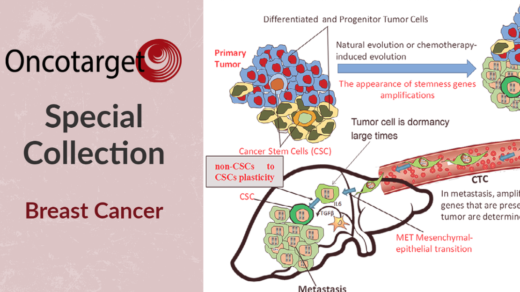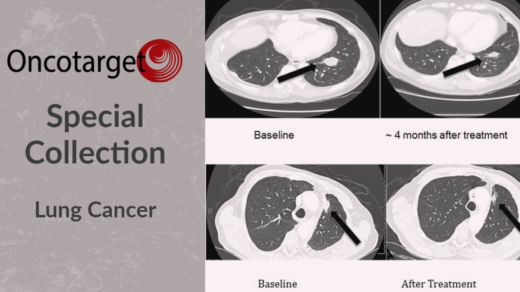“Considerations around maintenance therapy are of particular importance when drugs associated with cumulative neurotoxicity like Oxaliplatin form part of adopted regimens.”
A recent study from Assiut University Hospital in Egypt, published in Oncotarget, presents a promising strategy for patients with metastatic colorectal cancer (mCRC). The research introduces a gentler yet effective maintenance therapy that may extend survival, enhance quality of life, and offer a more accessible treatment option for mCRC patients worldwide.
The Challenge of Treating Metastatic Colorectal Cancer
Colorectal cancer is one of the most common causes of cancer-related deaths worldwide. When it spreads to other parts of the body—a stage known as mCRC—it becomes much more difficult to treat. At this stage, clinicians often use strong drug combinations like FOLFOX or CAPOX, which mix chemotherapy drugs to stop cancer growth. FOLFOX combines three drugs given intravenously, while CAPOX includes two of the same drugs, with one taken as a pill.
While effective, these treatments can cause serious side effects. For example, one of the main drugs, oxaliplatin, can lead to nerve damage, making it painful or difficult to use the hands and feet. Fatigue, diarrhea, and other issues are also common. Over time, these side effects may force clinicians to stop or adjust the treatment, even if it is working.
That is where maintenance therapy comes in. After the cancer is controlled, clinicians often switch to a gentler treatment plan to keep it from returning. The challenge is finding a therapy that continues to work without causing too many side effects, especially in places where access to expensive or intensive treatments is limited.
The Study: A Targeted, Low-Intensity Maintenance Option for Metastatic Colorectal Cancer
In the study titled “Could Panitumumab with very low dose Capecitabine be an option as a maintenance regimen,” recently published in Volume 16 of Oncotarget, researchers Doaa A. Gamal, Aiat Morsy, and Mervat Omar from Assiut University Hospital focused on a combination of two well-established drugs. Panitumumab is a targeted therapy that blocks a protein called EGFR, which helps cancer cells grow and divide. Capecitabine is a chemotherapy drug that turns into 5-fluorouracil inside the body to stop cancer cell growth.
Instead of delivering Capecitabine in high, occasional doses, the researchers used a low, continuous dose—a method known as metronomic dosing—designed to reduce side effects while maintaining anti-cancer effects.
The study involved 25 patients with mCRC who had a specific genetic profile: wild-type KRAS and BRAF, meaning they did not have mutations in those genes. All patients first received six rounds of standard chemotherapy plus Panitumumab. Those who responded well were then switched to the maintenance phase: Panitumumab every two weeks, along with daily low-dose Capecitabine.
The Results: Longer Survival and Better Tolerability
Patients in this study experienced an average of 18 months without their cancer getting worse—a period known as progression-free survival (PFS). By comparison, patients without maintenance therapy typically see a PFS of only 4–8 months. Their overall survival—the average time they lived after starting treatment—reached 45 months, far exceeding the 12 to 30 months reported in earlier studies with more intensive regimens.
Patients whose cancer had spread at the same time as their initial diagnosis (called synchronous metastasis) had even better outcomes, with PFS extending beyond 23 months.
The treatment was also well-tolerated. Only 8% of patients experienced severe side effects such as skin rash or diarrhea, and those symptoms were managed with standard care. No one had to stop or change their treatment due to side effects.
The Breakthrough: A Simpler Approach to Metastatic Colorectal Cancer Maintenance
This study is one of the first to explore Panitumumab in combination with metronomic Capecitabine as a maintenance strategy. The results suggest that using this combination in a low-intensity, long-term setting can keep the disease stable while minimizing the harsh effects of more aggressive therapies. Because both drugs are already approved and widely used, this regimen could be more easily implemented—especially for mCRC patients who have responded well to earlier treatments.
Importantly, this strategy may also help delay resistance to Panitumumab, which is a common issue when targeted therapies are used over time.
The Impact: Expanding Access to Safer Long-Term Colorectal Cancer Care
For many mCRC patients—particularly those in countries with limited healthcare—access to affordable and tolerable treatments is a major barrier. By using widely available medications in a simpler format, this regimen could help make effective maintenance therapy more accessible to a broader group of patients. Compared with other maintenance regimens studied in large trials, this approach showed similar or better results with fewer serious side effects.
Future Perspectives and Conclusion
Though this was a small study conducted at a single center, the findings are promising. Panitumumab combined with low-dose Capecitabine could be a safe and effective maintenance option for patients with wild-type KRAS and BRAF mCRC, especially those who start with strong responses and limited side effects.
Larger trials will be needed to confirm these results. However, if future research supports this strategy, it could transform the management of mCRC from high-intensity, short-term treatments to sustainable, patient-friendly care that supports long-term well-being.
Click here to read the full research paper in Oncotarget.
_______
Oncotarget is an open-access, peer-reviewed journal that has published primarily oncology-focused research papers since 2010. These papers are available to readers (at no cost and free of subscription barriers) in a continuous publishing format at Oncotarget.com.
Oncotarget is indexed and archived by PubMed/Medline, PubMed Central, Scopus, EMBASE, META (Chan Zuckerberg Initiative) (2018-2022), and Dimensions (Digital Science).
Click here to subscribe to Oncotarget publication updates.
For media inquiries, please contact media@impactjournals.com.



